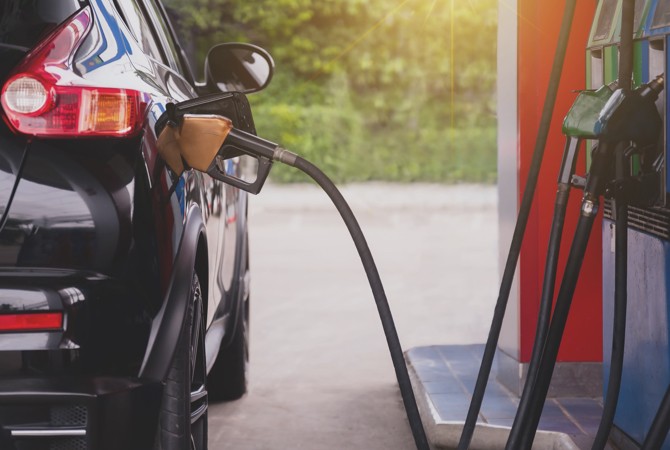Problem:
If you find yourself making more trips to the gas station, you’re painfully aware of the effect that decreased gas mileage has on your wallet. Whether you drive a car, truck or SUV, a sudden decrease in fuel economy can be a sign that there is something wrong with your vehicle.

Causes:
Decreased gas mileage has many different causes that may be acting alone or in combination with others. Here are a few of the main culprits:
Failing Oxygen Sensor
Connected to your vehicle’s computer, the oxygen sensor is responsible for telling the computer that the air/fuel mixture is too lean and needs more fuel. A bad oxygen sensor can ask for more fuel than what it actually needs. The result is wasted gas.
Dirty Air Filter
Clean air is a key component in the combustion process and a clogged air filter restricts the flow of clean air to your engine. An air filter caked with dirt and debris can have a negative effect on your gas mileage, leading to more fill-ups.
Bad Spark Plugs
Worn or dirty spark plugs prevent your engine from efficiently burning all of the fuel in the combustion chamber resulting in wasted gas.
Improper Tire Pressure
Low tire pressure increases your vehicle’s rolling resistance causing your engine to work harder (and use more fuel) to move your vehicle along the road.
Faulty Coolant Sensor/Thermostat
An inaccurate or defective coolant sensor or engine thermostat will send an incorrect signal to the engine computer causing the computer to think the engine is cold and supply more fuel.
Clogged Fuel Injectors
Responsible for getting gas into the engine, fuel injectors need to be clean and free of carbon to work efficiently. Dirty or clogged fuel injectors will cause inefficient combustion, wasting gas.
Bad Driving Habits
A big cause of decreased gas mileage can be chalked up to poor driving habits. Things that fall into this category include keeping the A/C on too much, which puts a load on your engine making it use more gas; too much idling—newer cars don’t need too much of a ‘warm up’ period and more than 30 seconds or so just wastes gas; driving at high speed also uses more gas than necessary; and using a roof rack to carry cargo can decrease your mileage anywhere from 2% in city driving to 20% at interstate highway speeds.
Symptoms:
An increase in trips to the gas station is the obvious symptom of decreased gas mileage. With the advanced dashboard displays available on today’s vehicles, keeping track of your gas mileage is relatively straightforward. Many instrument displays automatically calculate it for you at the push of a button.
Of course, you can always keep track of your mileage on your own. Start with a full tank of gas and put your trip counter to zero. The next time you fill up, write down the number of gallons you put in and the trip counter reading. Divide the miles traveled by how many gallons you put in the tank. This will give you the miles per gallon you achieved.
Solutions:
If you’re experiencing reduced gas mileage, there are a couple of things you can do to minimize fuel waste.
Adjust Your Driving Habits
Your driving habits play a large role in the mileage of your car. By making some changes to how you operate your vehicle, you may be able to achieve better gas mileage. Start by driving a steady 55mph, avoid hard braking and lay off the accelerator when coming from a dead stop.
Maintain Your Vehicle
Keeping up on routine maintenance is the best way to maintain your engine’s efficiency. Be sure to check the tire pressure, get regular oil changes, and change filters and fluids when needed to ensure that your vehicle can achieve the best gas mileage possible.
If you’re still making too many trips to the gas station after implementing these tips, it might be time to consult your mechanic. There could be an underlying issue with your vehicle that your mechanic needs to diagnose.
Learn more about vehicle maintenance products, find your part, or find where to buy your part today.
The content contained in this article is for informational purposes only and should not be used in lieu of seeking professional advice from a certified technician or mechanic. We encourage you to consult with a certified technician or mechanic if you have specific questions or concerns relating to any of the topics covered herein. Under no circumstances will we be liable for any loss or damage caused by your reliance on any content.
Related Parts
Champion® offers a wide variety of products for all your automotive needs.
Check them out!